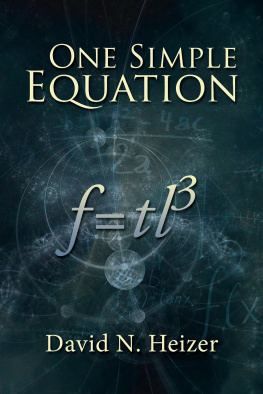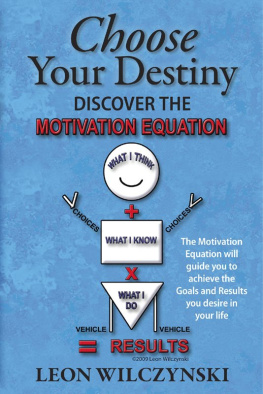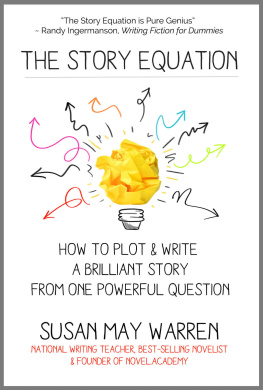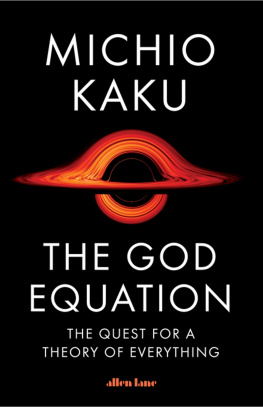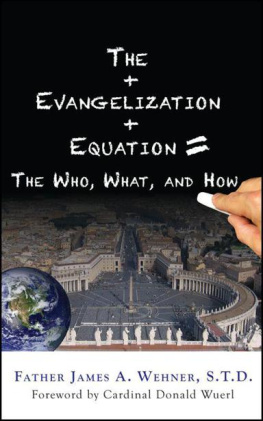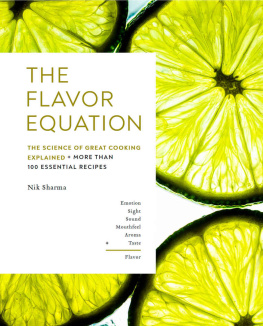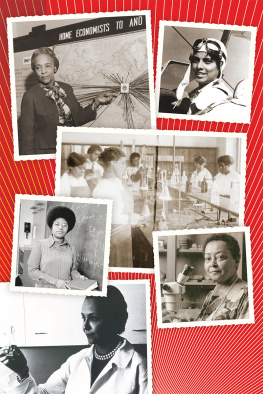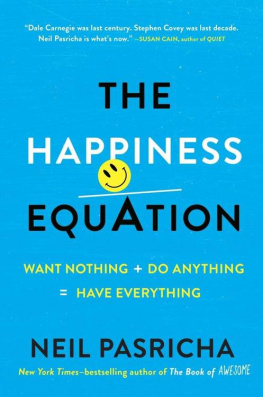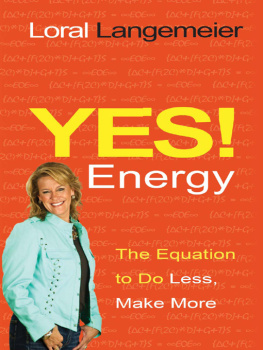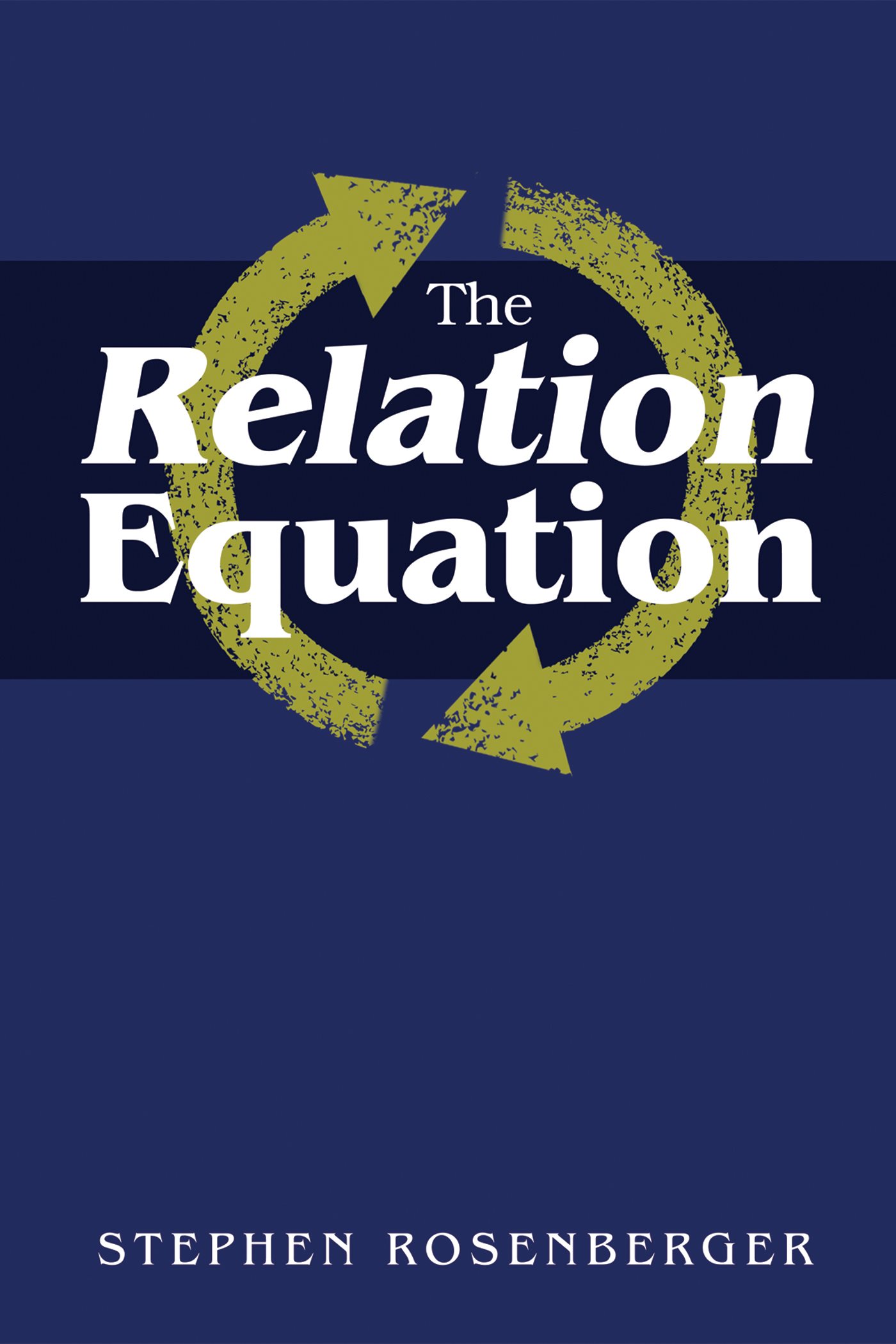The Relation Equation
Stephen Rosenberger
The Relation Equation
Copyright 2014 Stephen Rosenberger. All rights reserved. Except for brief quotations in critical publications or reviews, no part of this book may be reproduced in any manner without prior written permission from the publisher. Write: Permissions, Wipf and Stock Publishers, W. th Ave., Suite , Eugene, OR 97401 .
Resource Publications
An Imprint of Wipf and Stock Publishers
W. th Ave., Suite
Eugene, OR 97401
www.wipfandstock.com
ISBN : 9781-49820267-1
EISBN : 978-1-4982-0268-8
Manufactured in the U.S.A.12/18/2014
All scripture quotations, unless otherwise indicated, are taken from the Holy Bible, New International Version, NIV. Copyright 1973 , 1978 , 1984 , 2011 by Biblica, Inc. Used by permission of Zondervan. All rights reserved worldwide. www.zondervan.com The NIV and New International Version are trademarks registered in the United States Patent and Trademark Office by Biblica, Inc.
The Relation Equation is dedicated to the diehard optimist who loves unconditionally and forgives perpetually; to the relationally challenged who fails and tries again; to the heartbroken, lonely, and hurting soul. The Relation Equation is written for you and me; the ones who fail to exercise perfect love in our relationships and must look to the heavens for an example to follow. In essence, The Relation Equation was written for all, and dedicated to all.
Preface
Telling the story of behind the creation of The Relation Equation often creates more questions than it answers, but that is precisely how I prefer it. Building equity in a relationship initially seems ridiculous; at least, it did to me. As a matter of fact, I asked multiple people if my inner monologue regarding the topic was simply my own nonsensical way of processing ideas or if relationship equity truly had a wider audience.
The vast majority of experiences driving the text, some of which you will find overtly stated as examples within, occurred over a period of time spent with my cohorts (Tyler and Alyssa Bream) in Cleveland, Ohio, as we launched a faith-based, non-profit, community-oriented art gallery. Appropriately so, the gallery was named Agape, as the love of God was the primary reason for our presence there. Our operating model was centered on building relationships with the people of the community, be it artists, servers, restaurateurs, bartenders, shop keepers, educators or the average Joe resident.
As we began interacting with our community in early 2011 , we immediately encountered difficulty with objectively describing, let alone quantifying, any success we had building relationships. The community we served was not an easy one to break into, which is a point mentioned later within the text. In fact, many a business failed to begin operations, or was significantly delayed, because of insufficient support at block-club meetings. We knew from the onset that building credibility with our neighbors was paramount to Agapes success and our ability to provide a viable service to a community we so very much loved. Through an intentional building of relationships, we sought to be trusted enough to serve our neighbors and used relationship equity to gauge whether or not we had sufficient credibility to do so.
The process of intentional relationship building continued through the departure of my original cohorts and the addition of an extraordinary young woman by the name of Laney. Laney came to Agape as an intern in mid- 2013 and secured a full-time staff position within four months; the girl was incredibly talented. Her most apparent attribute was the unique ability to build and maintain relationships with practically everyone; no one felt left out so long as Laney was present. This one thing was certain: Regardless of whose voice represented our organization at any given time, the persisting objective was the formation and growth of meaningful relationships.
Acknowledgments
To anyone and everyone who has poured into me: thank you from the bottom of my heart. Ive often stated that there has never been a person I met who did not impact my life in some manner: so to all I have encountered in this life: thank you. My family and friends whose constant love and support motivates me to accomplish more today than I did yesterday: thank you. Colleagues along the way who inspired me to be better than in times before: thank you. Most of all I must acknowledge my Lord and Savior Jesus Christ: thank you!
Tyler and Alyssa Bream, you crazy kids bought into the idea that the missional life could be lived-out through a small art gallery in Cleveland, and you encouraged me to pursue the notion of relationship equity: thank you. Matt Anderson, you encouraged me to keep writing when I wanted to punt my laptop out the window, and you came up with a fantastic name for this book when I simply could not: thanks man. Renee, thanks for letting me bend-your-ear about the business end of the writing process: you were a bigger help than you may know. Lorene, youre an example of how editor can be attentive to the mechanical problems in a piece of writing and led by the Holy Spirit with regards to content: thank you.
Introduction
It occurred to me a number of years ago that the concept of building equity in an asset had applications reaching far beyond the contexts of corporate and consumer finance. In fact, I worked with equity in the financial services world for a number of years before believing that additional applications were sensible enough to introduce to other individuals passionate about building relationships with those around them.
To varying extents, we all employ relationship equity but may never have defined it as such. By defining relationship equity, we challenge ourselves to be intentional about employing it, thereby leading a more effective life: be it with our families, coworkers, or friends. Whether you begin reading The Relation Equation as the CEO of a Fortune company, a middle manager at a steel mill in a blue-collar town, or as a tireless laborer at an organization dear to you, the principles of relationship building universally apply.
The chapters to come will focus on what relationship equity is, so it seems appropriate to spend a moment informing the reader of what it is not. To the more cynical reader, although it may appear to be, it is not an attempt to create an all-encompassing formula to explain every nuance of relationships; I am simply not that wise. The principles found within this text apply to relationships universally; thus, the express purpose of the remaining pages is merely to reframe a well-known portion of the human experience with terms previously unused.
The Relation Equation is not a strategy to assist with the use of people for personal gain by appealing to their susceptibilities (i.e. getting on their good side): people are intelligent enough to detect when they are being manipulated or used. A healthy relationship requires pure motives, even if one does not approach this text with a subscription to the same westernized Christian worldview to which I, as the author, subscribe. Having stated such, each and every one of the arguments presented assumes this basic construct: The foundation of relationship must be love.
In the chapters to come, you will be challenged to wrestle with theories and methodologies that may occasionally seem cold and formulaic, but stick with it. Understand that these are not attempts to diminish a supernatural influence upon relationships; in fact, my hope is that you will find the biblical model of building relationships amply useful toward informing the process of restarting broken relationships, and mending breaking ones.


